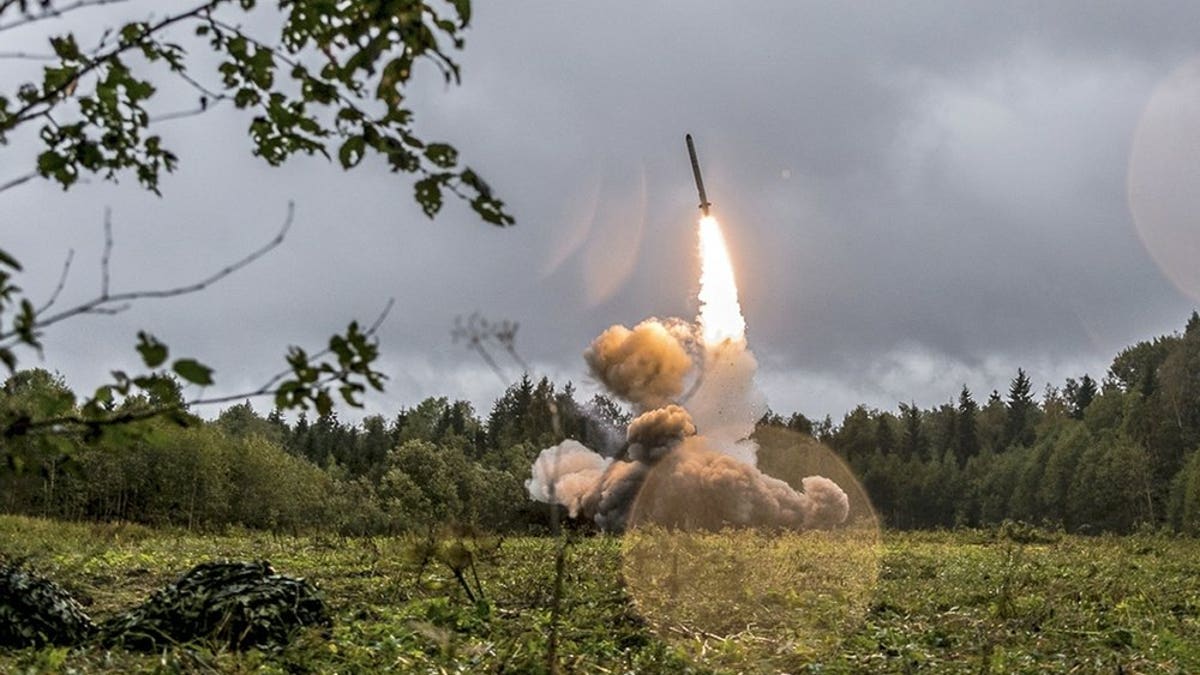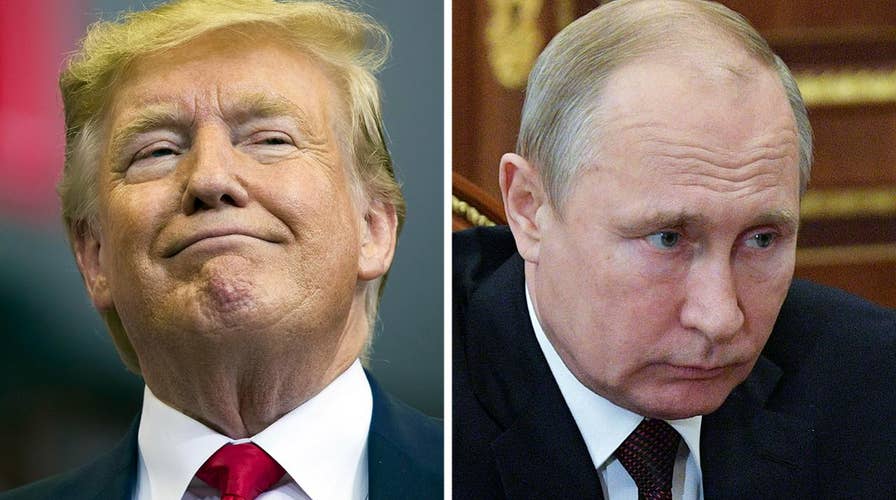Trump administration scraps Cold War-era arms control treaty with Russia
U.S. officials and NATO allies say the Russians repeatedly and consistently violating the terms of the Intermediate-range Nuclear Forces treaty that President Reagan and Soviet leader Mikhail Gorbachev signed more than 30 years ago; Kevin Corke reports from the White House.
The North Atlantic Treaty Organization (NATO) said Friday it will respond “in a measured and responsible” way to Russia’s new missiles, but said the alliance will work to avoid a new arms race after the end of the Intermediate-range Nuclear Forces (INF) treaty.
NATO Secretary-General Jens Stoltenberg said during a news conference that there would be “no rash moves” by the military alliance and “would not mirror what Russia does.”
US PULLS OUT OF REAGAN-ERA ARMS TREATY, SAYING RUSSIA 'MADE NO EFFORTS' TO COMPLY
“We don’t want a new arms race,” Stoltenberg added, but reiterated that Russia is solely to blame for the U.S. decision to leave the historic arms-control treaty signed three decades ago.
“We don’t want a new arms race.”
Both NATO and the U.S. accused Russia of violating the INF treaty that kept nuclear weapons out of Europe and avoided short-notice attacks.
“Russia bears sole responsibility for the demise of the treaty,” the NATO allies said, adding that “NATO will respond in a measured and responsible way to the significant risks posed by the Russian 9M729 missile ... We have agreed a balanced, coordinated and defensive package of measures.”
The Russian government, meanwhile, blamed the U.S. for the end of the treaty, suggesting the U.S. is working to undermine all international agreements.
“The denunciation of the INF treaty confirms that the U.S. has embarked on destroying all international agreements that do not suit them for one reason or another,” the Russian Foreign Ministry said in a statement Friday. “This leads to the actual dismantling of the existing arms control system.”
"The denunciation of the INF treaty confirms that the U.S. has embarked on destroying all international agreements that do not suit them for one reason or another."
RUSSIA WILL PAY A BIG PRICE FOR ARMS CONTROL TREATY VIOLATIONS
But the Trump administration said it determined that Russia was in “material breach of the treaty” and made no effort to “come back into compliance” with the agreement, a senior White House official said.
Russia was given a six-month period, in accordance with the treaty, as a “final opportunity to come back into compliance” with the agreement, but the government headed by President Vladimir Putin “has made no efforts to do that,” the official added.

This undated file photo provided Tuesday, Sept. 19, 2017, by Russian Defense Ministry official web site shows a Russian Iskander-K missile launched during a military exercise at a training ground at the Luzhsky Range, near St. Petersburg, Russia. (Russian Defense Ministry Press Service via AP/File)
The end of the treaty sparks fears of a new global arms race between the two countries, which possess the world's largest nuclear arsenals.
The Trump administration stressed it was Russia’s fault the treaty came to an end, pointing out that Moscow has been developing and fielding weapons that violate the treaty and threaten the U.S. and its allies, particularly in Europe.
“Russia alone is to blame for this situation,” the senior official said. “We have taken every opportunity -- dozens and dozens of opportunities across two administrations – to bring Russia back into compliance.”
“It is clear that they are in material breach of the INF Treaty, which is, of course, not its only arms control violation. They are a serial violator of arms control agreements,” the official added, noting that “This violation, however, represents a direct security threat to the United States and our allies.”

In this Dec. 8, 1987, file photo, President Ronald Reagan, right, shakes hands with Soviet leader Mikhail Gorbachev after the two leaders signed the Intermediate Range Nuclear Forces Treaty to eliminate intermediate-range missiles during a ceremony in the White House East Room in Washington. The landmark arms control treaty that Reagan and Gorbachev signed three decades ago is dead. (AP)
CLICK HERE TO GET THE FOX NEWS APP
Another White House official pointed out that Russia has been deceptive about its military buildup, particularly denying the development of a ground-launched cruise missile in 2014 that is now fielded and poses a security risk to Europe.
“Throughout the process, they lied about the existence of the missiles at both the expert level and, finally when confronted with the evidence, came clean for this in the past several months,” the official said.
The Associated Press contributed to this report.




















